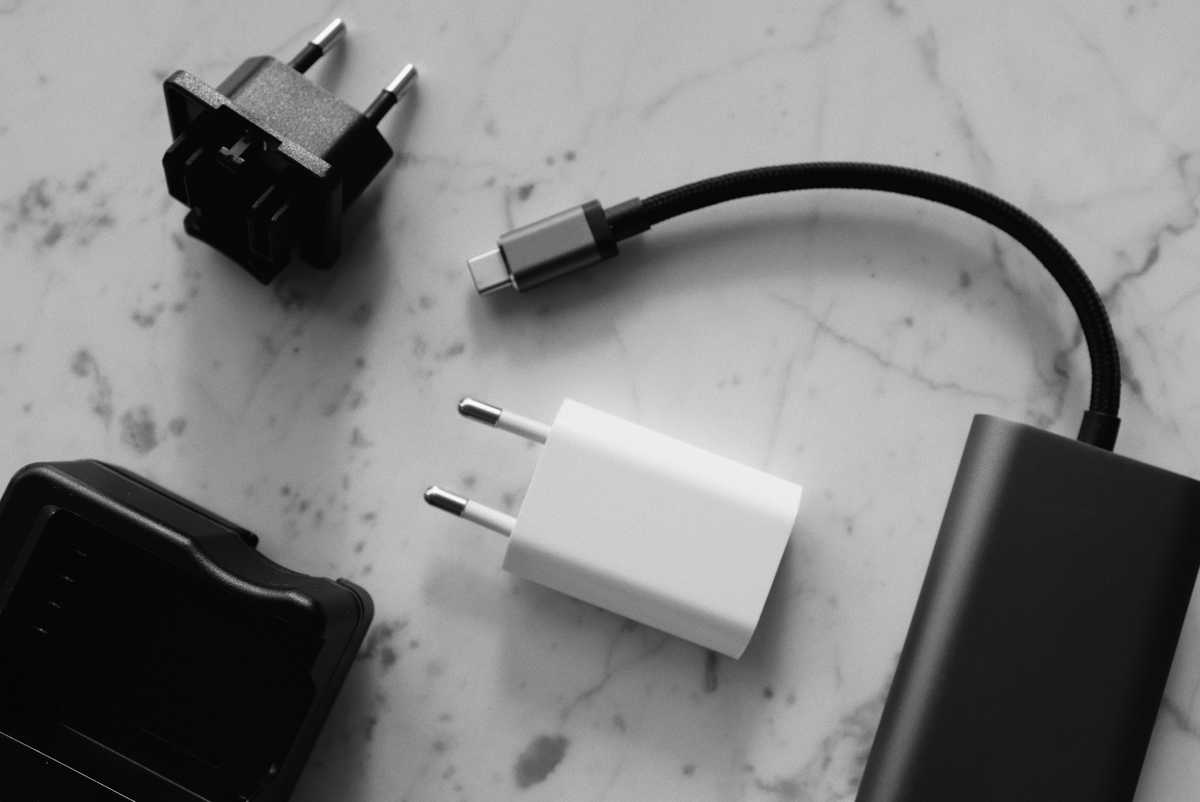If you’re looking for the best USB-C cable for data transfer, you need more than just any standard cable. While USB-C has become the universal connector for many devices, not all cables offer the same speed and reliability. Choosing the wrong cable can result in slow file transfers, lagging external SSDs, and compatibility issues. In this guide, we’ll break down the top five high-speed USB-C cables that ensure fast and efficient data transfer, whether you’re moving large files, backing up data, or connecting peripherals. Let’s find the best USB-C cable for data transfer that suits your needs.
Disclosure
Some of the links in this post are affiliate links, which means I may earn a small commission if you click and buy. As an Amazon Associate, I earn from qualifying purchases.
What to Look for in the Best USB-C Cable for Data Transfer
Not all USB-C cables are optimized for high-speed data transfer. Here’s what to check before buying:
- USB Version: Look for USB 3.1 Gen 2, USB 3.2, USB4, or Thunderbolt 4 for the fastest speeds.
- Data Transfer Speed: A good cable should support at least 10Gbps; premium options go up to 40Gbps.
- Durability & Build Quality: Braided cables and reinforced connectors improve longevity.
- E-Marker Chip: Ensures safe and efficient power delivery along with fast data transfer.
- Length & Compatibility: Longer cables may reduce performance, so choose wisely based on your setup.
Now, let’s review the best USB-C cable for data transfer across different needs.
| Cable Model | Data Transfer Speed | Power Delivery | Length | Buy Now |
|---|---|---|---|---|
| Cable Matters USB 3.1 Gen 2 USB-C to USB-C | Up to 10Gbps | Up to 100W | 3.3 feet (1 meter) | Buy Now |
| Belkin 3.1 USB-C to USB-C Cable | Up to 10Gbps | Up to 100W | 3.3 feet (1 meter) | Buy Now |
| Anker 515 USB-C to USB-C Cable (USB4) | Up to 40Gbps | Up to 100W | 3.3 feet (1 meters) | Buy Now |
| OWC Thunderbolt 4 / USB4 Cable | Up to 40Gbps | Up to 100W | 3.3 feet (1 meter) | Buy Now |
| UNI USB-C to USB-C 10Gbps Cable | Up to 10Gbps | Up to 100W | 6.6 feet (2 meters) | Buy Now |
Key Considerations:
- Data Transfer Speed: For tasks requiring rapid data movement, such as transferring large files or connecting to high-speed storage devices, cables like the Anker Thunderbolt 3.0 offer superior speeds up to 40 Gbps.
- Power Delivery: If you need a cable that supports both fast data transfer and high-wattage charging, ensure it has adequate power delivery capabilities. The Anker Powerline III USB-C, for instance, supports up to 100W, suitable for charging laptops and other power-hungry devices.
- Length: Longer cables provide flexibility in setup but may introduce signal degradation if not well-constructed. The UNI USB C 6ft offers a balance between length and performance.
When selecting a USB-C cable for fast data transfer, it’s crucial to match the cable’s specifications with your device’s requirements to ensure optimal performance.
Top 5 USB-C Cables for Fast Data Transfer
Cable Matters USB 3.1 Gen 2 USB-C to USB-C Cable
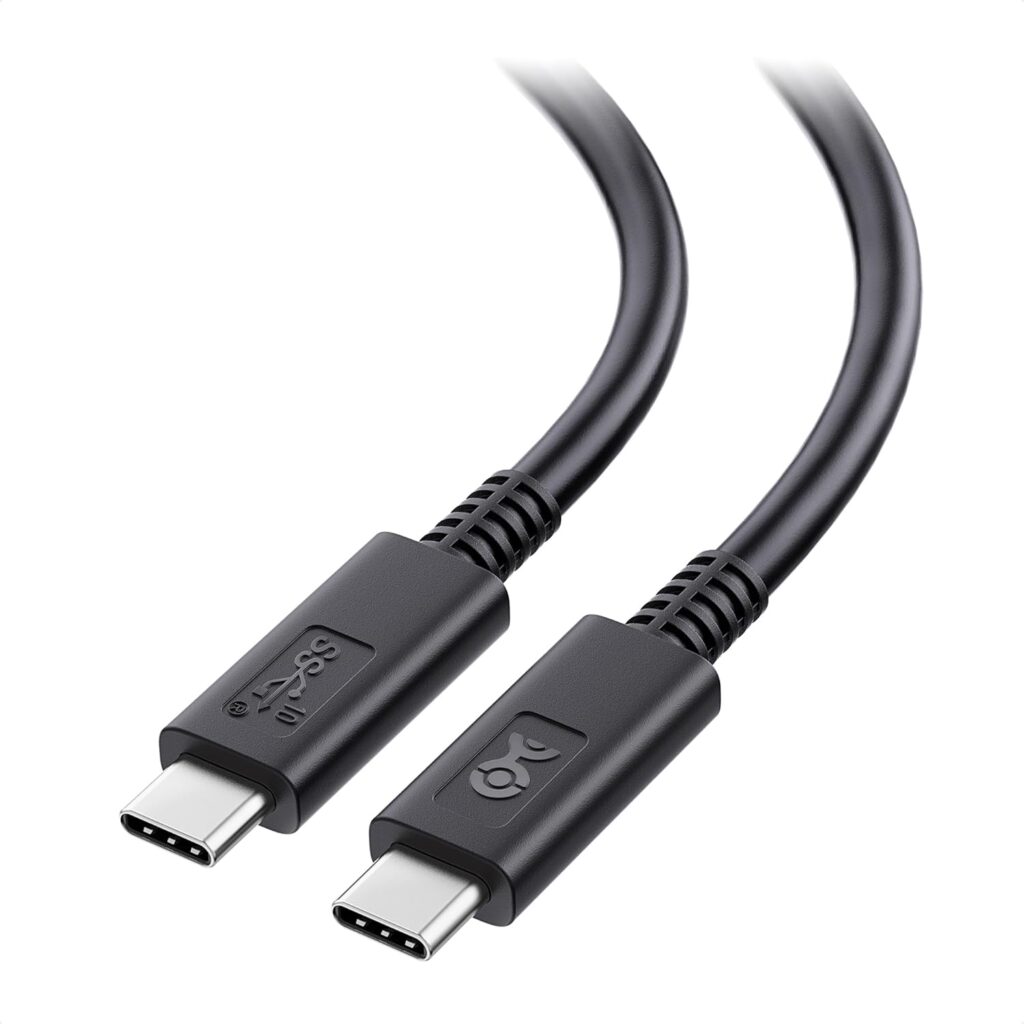
Overview:
The Cable Matters USB 3.1 Gen 2 cable is praised for its reliable performance and adherence to USB-IF certification standards. Users appreciate its robust build quality and consistent data transfer rates. One reviewer noted that the cable delivers stable connections without data corruption, making it ideal for external hard drives and high-speed peripherals.
Key Features:
- Data Transfer Speed: Up to 10Gbps
- Power Delivery: Supports up to 100W charging
- Length: 3.3 feet (1 meter)
- Certification: USB-IF certified
Buy Now: Cable Matters USB 3.1 Gen 2 USB-C to USB-C Cable
2. Belkin 3.1 USB-C to USB-C Cable
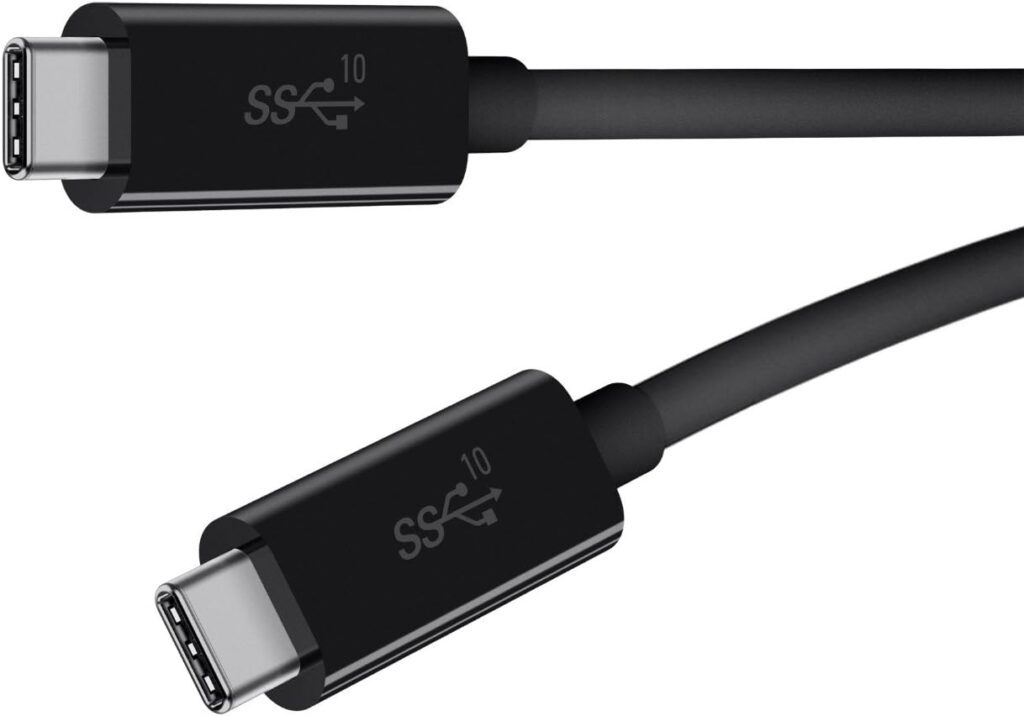
Overview:
Belkin’s 3.1 USB-C to USB-C Cable is recognized for its high-speed data transfer capabilities and durable construction. Users highlight its efficiency in transferring large files and charging devices simultaneously. The cable’s compatibility with various devices, including laptops and smartphones, adds to its versatility.
Key Features:
- Data Transfer Speed: Up to 10Gbps
- Power Delivery: Supports up to 100W charging
- Length: 3.3 feet (1 meter)
- Certification: USB-IF certified
Buy Now: Belkin 3.1 USB-C to USB-C Cable
3. Anker 515 USB-C to USB-C Cable
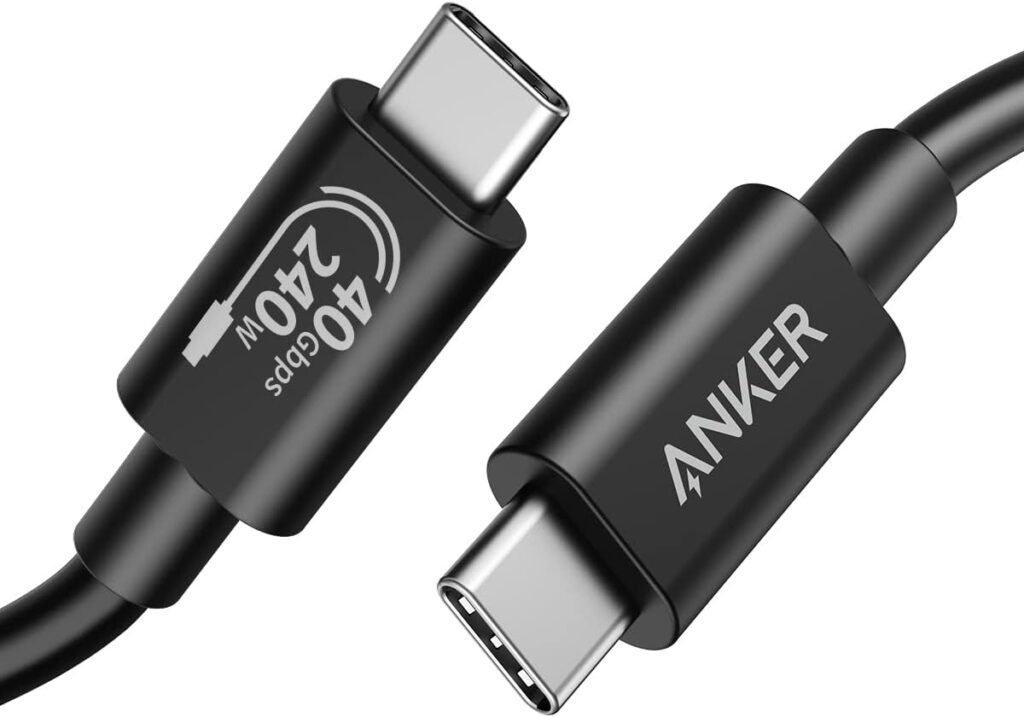
Overview:
The Anker 515 USB-C to USB-C Cable (USB4) is one of the best options for users who need ultra-fast data transfer speeds, high power delivery, and Thunderbolt 3/4 compatibility. Unlike standard USB-C cables that max out at 5Gbps or 10Gbps, this cable supports blazing-fast 40Gbps transfer rates, making it ideal for external SSDs, 8K video output, and professional workflows.
Key Features:
- Data Transfer Speed: Up to 40Gbps
- Power Delivery: Supports up to 100W charging
- Thunderbolt 3/4 Compatibility: Fully compatible with Thunderbolt 3 and 4, allowing seamless integration with high-end devices like MacBooks, docking stations, and eGPUs.
- Length: 3.3 feet (1 meters)
- Durability: Tested for high bend tolerance
Buy Now: Anker 515 USB-C to USB-C Cable
4. OWC Thunderbolt 4 / USB4 Cable
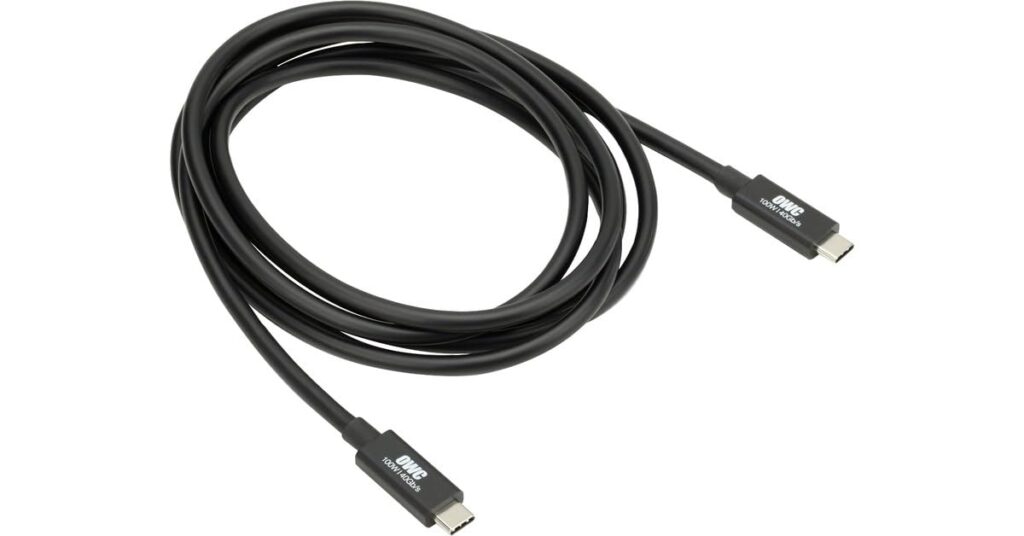
Overview:
OWC’s Thunderbolt 4 / USB4 Cable is lauded for its exceptional data transfer speeds and versatility. Users appreciate its ability to maintain high throughput over longer distances, making it suitable for professional setups requiring reliable and fast data transmission.
Key Features:
- Data Transfer Speed: Up to 40Gbps
- Power Delivery: Supports up to 100W charging
- Length: 3.3 feet (1 meter)
- Compatibility: Thunderbolt 3 and USB4 devices
Buy Now: OWC Thunderbolt 4 / USB4 Cable
5. UNI USB-C to USB-C 10Gbps Cable
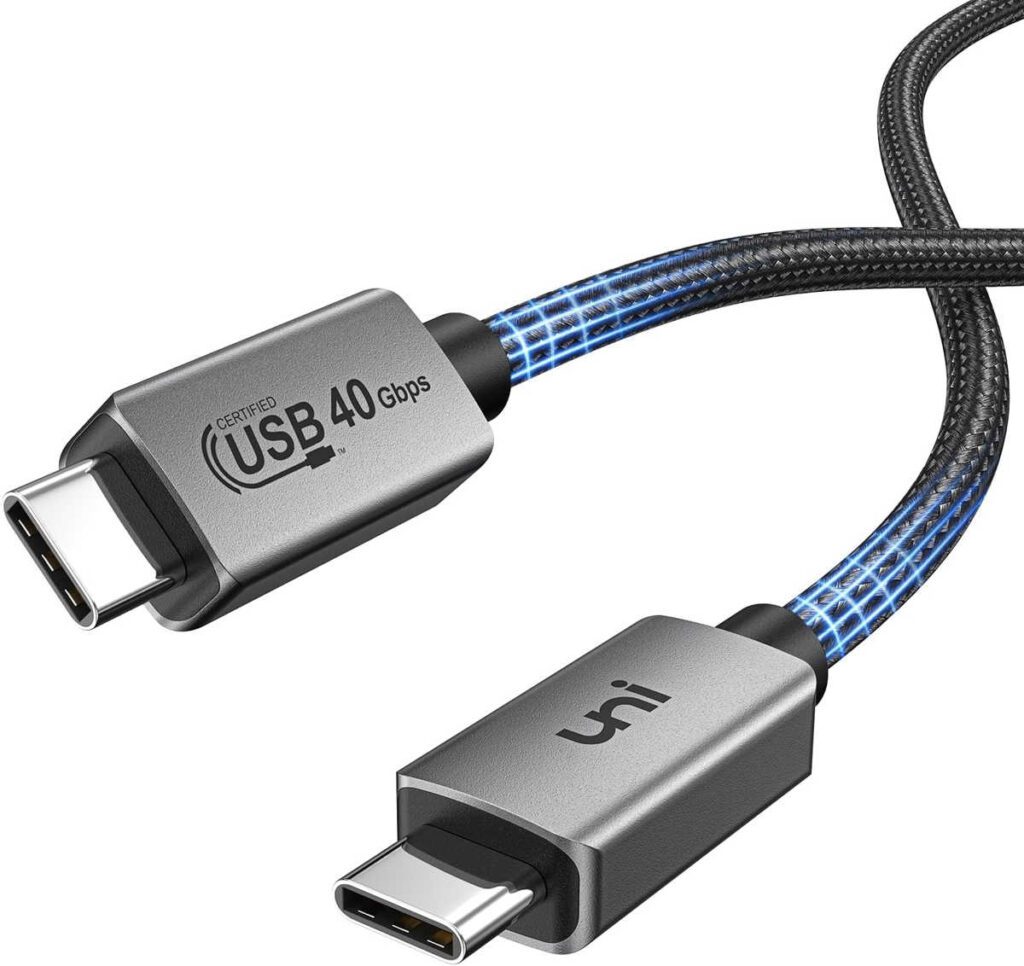
Overview:
The UNI USB-C to USB-C Cable offers a balance between performance and affordability. Users highlight its reliable data transfer rates and sturdy construction. Its compatibility with a wide range of devices makes it a versatile choice for both personal and professional use.
Key Features:
- Data Transfer Speed: Up to 10Gbps
- Power Delivery: Supports up to 100W charging
- Length: 6.6 feet (2 meters)
- Durability: Braided nylon for enhanced longevity
Buy Now: UNI USB-C to USB-C 10Gbps Cable
Understanding USB-C Data Transfer Speeds: Bandwidth vs. Speed
When choosing the best USB-C cable for data transfer, you’ll often see speeds listed as 5Gbps, 10Gbps, 20Gbps, or even 40Gbps. However, what’s actually being measured here is bandwidth, not actual transfer speed.
Bandwidth vs. Speed: The Water Pipe Analogy
Think of bandwidth like the width of a water pipe, and speed like the actual flow of water inside the pipe.
- Bandwidth (Pipe Size): Determines the maximum capacity the cable can handle at once.
- Speed (Water Flow): The actual transfer rate depends on the device, file type, and protocol being used.
For example:
- A USB 3.1 Gen 1 cable with 5Gbps bandwidth allows up to 625MB/s transfer speed, but real-world speeds may be lower due to file compression, device limitations, or overhead.
- A USB4 or Thunderbolt 4 cable with 40Gbps bandwidth offers significantly higher potential speeds, but you’ll only reach full performance if both connected devices support it.
How To Convert Gbps to MB/s
If you’re looking at a cable that says it supports 10Gbps speeds, what’s the actual speed in terms of MB/s? The answer is simple:
Take the Gbps and divide it by 8.
Using the example above:
- 10Gbps / 8 = 1,250MB/s
This means that setting aside any variables that could impact the transfer speed, this 10Gbps USB-C cable could theoretically allow you to transfer 1,250MB per second. However, this is rarely the case, which brings us to our next point: What could slow your transfer speeds?
What Slows Down USB-C Data Transfers?
Even if you buy a high-bandwidth USB-C cable, real-world speeds depend on:
✅ The device’s USB version (A USB 3.2 cable won’t make a USB 2.0 device faster).
✅ The storage drive’s capability (External SSDs transfer faster than mechanical hard drives).
✅ File type & transfer method (Large single files move faster than thousands of small files).
That’s why choosing the best USB-C cable for data transfer isn’t just about maximum bandwidth—you need a well-matched cable and device to get actual high-speed performance.
Final Thoughts
Choosing the best USB-C cable for data transfer depends on your device compatibility, speed requirements, and budget. Whether you need a budget-friendly option, a high-speed cable for SSDs, or a Thunderbolt 4-certified cable, there’s a perfect match for your needs. Not all USB-C cables are the same, so always check specifications before buying.
Frequently Asked Questions
Do all USB-C cables allow data transfer?
No, not all USB-C cables are designed for data transfer. Some cables are intended solely for charging purposes and lack the necessary wiring for data transmission. It’s essential to verify the specifications of a cable to ensure it supports data transfer.
Is USB-C good for data transfer?
Yes, USB-C is highly effective for data transfer. The USB-C connector supports various data transfer protocols, including USB 3.1, USB 3.2, and Thunderbolt 3, enabling high-speed data transmission suitable for tasks ranging from simple file transfers to complex video streaming.
Do all USB-C cables have the same transfer speed?
No, USB-C cables can have varying data transfer speeds. While some cables support basic USB 2.0 speeds of up to 480 Mbps, others are designed for USB 3.1 or USB 3.2 standards, offering speeds up to 10 Gbps or higher. It’s crucial to check a cable’s specifications to ensure it meets your required data transfer speed.
What is the best USB type for data transfer?
The optimal USB type for data transfer depends on your specific needs. USB 3.1 and USB 3.2 standards provide high-speed data transfer capabilities suitable for most users. For exceptionally high-speed requirements, such as professional video editing or large data backups, Thunderbolt 3 or USB4, which utilize the USB-C connector, offer superior performance.
How can I determine if a USB-C cable can transfer data?
To ascertain if a USB-C cable supports data transfer, review the manufacturer’s specifications or labeling. Cables designed exclusively for charging may lack the internal wiring necessary for data transmission. If the information isn’t readily available, contacting the manufacturer or consulting the product documentation can provide clarity.
Understanding these distinctions is vital when selecting the best USB-C cable for data transfer, ensuring compatibility and optimal performance for your devices.
